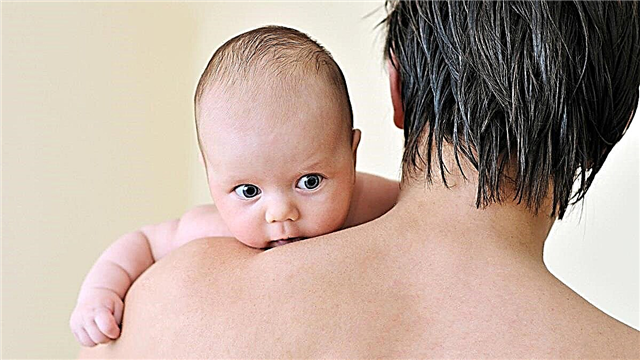
Men and women who are recommended IVF as a last chance to become parents are interested in two questions - how effective the technique is and how much it costs. In this material, we will tell you what the cost of an in vitro fertilization procedure is made up of and what are the average prices for it in Russia for 2018.
What does the price depend on?
Artificial insemination is not a cheap medical care. IVF, as one of the types of artificial insemination, belongs to the category of high-tech types of medical care, and therefore its cost is quite high.
In vitro fertilization involves the fertilization of a female egg outside the woman's body. In practice, it looks like this: first, a woman is prepared with hormonal drugs for superovulation (the maturation of not one follicle in the ovaries, but several), then the ripened follicles are punctured and the mature eggs are taken away. They are fertilized in the embryological laboratory with spermatozoa, the development of embryos is monitored for several days, and then the agreed number of embryos is transferred into the patient's uterine cavity. If the embryos are implanted, the protocol will be considered successful.
The success rate for IVF, alas, is not one hundred percent. The share of successful protocols, according to statistics, is 35-40%, depending on many factors - the patient's health, her age, the tactics of the procedure chosen by the doctor.


It is accepted to pay for each of the IVF stages, making payment for the upcoming stage. If the procedure is interrupted for some reason by the decision of the doctor (contraindications, dangerous complications have appeared), only those funds that were paid for the stage not yet carried out will be returned. In case of unsuccessful IVF, as a result of which the pregnancy did not take place, the funds paid by the spouses are not returned, but the subsequent protocol, according to the current practice in Russian clinics, will cost somewhat cheaper than the first.
The cost of an in vitro fertilization attempt is made up of the cost of each stage:
- testing before the procedure;
- preparation, stimulation of the female sex glands with hormones;
- puncture of mature follicles and collection of oocytes;
- fertilization itself and subsequent cultivation of the embryos;
- implantation of embryos into the patient's uterus;
- monitoring the woman during the first weeks after the transfer and determining pregnancy (or her absence).

At the stage of stimulating the ovaries, hormonal agents are used, the cost of which is the lion's share of the cost of the stage. It depends on which particular drug will be chosen by the attending physician, but the price of even the most "budgetary" drugs exceeds 30 thousand rubles, and on average is about 60 thousand. In addition, at this stage, the woman does several ultrasounds to monitor the response of the ovaries to hormonal effects, as well as to assess the degree of maturation of the follicles in order to choose the right time for puncture.
At the puncture stage, anesthesia is paid for (done under anesthesia), as well as the procedure itself for puncture and aspiration of oocytes.
During the fertilization stage, costs can suddenly rise. If the patient has poor-quality oocytes, which cannot be fertilized, or there is a high risk of having a child with genetic abnormalities, a donor biomaterial may be required. Egg donation in our country has existed not so long ago, but in cryobanks - special storage facilities, there is a fairly large supply of oocytes. Donor eggs need to be paid in excess of the specified cost of the protocol - the cost of the procedure can double, if not triple.


With a bad spermogram of the husband, IVF with ICSI (intracytoplasmic sperm injection) is often recommended. In this procedure, the sperm is placed with microinstruments directly into the cytoplasmic fluid of the egg. With conventional IVF, the female gonads are simply in the same laboratory dish with the purified sperm. With ICSI, doctors "help" one, the most healthy sperm to get right where it is needed. ICSI can increase the cost of the protocol by 25-40 thousand rubles.
Donor sperm may be required if there is no sperm or at least one healthy full-fledged sperm in it. Also donor spermatozoa are used in IVF for single women who want to give birth and raise a child on their own, without a husband. You will have to pay up to 40 thousand rubles for donor sperm.
In some cases, pre-implantation diagnosis is recommended. Before the transfer, the embryologist examines the characteristics of the embryos and excludes those that are not healthy. Such a diagnosis is necessary if the partners have genetic abnormalities or they have occurred in close relatives of a man and a woman. Depending on the amount of information studied on the recommendation of a geneticist, preimplantation diagnostics can increase the cost of the IVF protocol by 40-220 thousand rubles.

The transfer of cultured embryos to the uterine cavity is usually included in the total cost of the program. If there are “extra” oocytes suitable for conception or unused embryos remain, the couple is invited to freeze them so that they can conceive a child later or to transfer ready-made embryos in the next protocol, if the first protocol is unsuccessful.
Freezing embryos will cost about 20-25 thousand rubles, and monthly for storing them in a cryobank will have to pay about 1.5 thousand rubles. A separate storage will cost more - from 4 thousand rubles per month. Cryopreservation of oocytes will cost 15-20 thousand with the subsequent payment for storage of biomaterial in the amount of about 1000 rubles per month.
The services of a surrogate mother, if a woman is unable to bear a fetus due to age or problems of an anatomical and physiological nature, will increase the couple's expenses for conceiving and bearing a baby by about 1-3 million rubles.
At the stage of waiting for the result, a woman will need to pay only for a blood test for hCG on the 14th day after the transfer (about 600 rubles) and two ultrasounds (on days 21 and 28 after the transfer) - 1.5-2 thousand rubles per ultrasound.
Average cost in Russia
The price for IVF is quite unstable and can change every year; therefore, it is quite problematic to calculate the uniform average statistical boundaries. First of all, it is influenced by the region where it is planned to carry out the course of treatment - in different subjects, prices can differ quite significantly. As of 2018, the average cost of one attempt of in vitro fertilization in the standard protocol is 140-180 thousand rubles.
Let's make a reservation right away that by the standard protocol we mean stimulation of ovulation with hormones, puncture of follicles, fertilization and cultivation of embryos for 2-5 days, transfer. Further we will talk about standard protocols, without the use of donor biomaterial, without ICSI, without preimplantation diagnostics.
The most expensive IVF protocols, according to statistics, are in Moscow and St. Petersburg. There the cost varies from 180 to 270 thousand rubles. However, it should be noted that abroad similar infertility treatment is more expensive, for example, in Israel - by about 35%, and in Spain - by almost 2 times.


In Barnaul, the cost of IVF is lower - from 140 to 180 thousand rubles. Almost the same prices are held in most small towns in Siberia and the Volga region. In larger cities, prices are slightly higher, but less than in the capital, for example, in Volgograd in 2018, an IVF protocol costs on average from 150 to 200 thousand rubles. The same price level is held in Voronezh, Yekaterinburg. IVF is a little more expensive in Kazan - on average, the price for a protocol varies from 160 to 210 thousand rubles. In Krasnodar, Rostov, Irkutsk and Novosibirsk prices start at 145 thousand and can reach 240 thousand.
Prices may fluctuate up or down depending on the type of protocol. If embryo replanting is carried out without preliminary drug stimulation, that is, doctors received one egg that has matured naturally, then the cost will be much lower - within 90-110 thousand rubles on average in the country. The lowest prices for IVF in the natural cycle were registered in Ufa - from 87 thousand rubles. The effectiveness of such punctures is very low - the success rate does not exceed 11-15%.
A short protocol, in which the stimulation will be short-lived (in the onset of the menstrual cycle in its first phase), will be less expensive financially, since much less expensive hormonal drugs will be required. Natural IVF protocol this year on average in the country costs from 149 thousand rubles.

Long IVF protocol is much more expensive. With it, stimulation of the growth of follicles in the ovaries with hormonal agents begins in advance, 2-3 weeks before the start of the next menstrual cycle according to calendar calculations. The cost of such a course is 170-235 thousand rubles.
Accordingly, donated eggs, sperm or embryos will increase the cost of a particular service (the difference is indicated above).
Is it possible to do everything for free?
Since 2012, the state has been supporting infertile couples by allocating quotas for IVF. They can be both regional, which are paid from the regional budget, and federal, paid from the state treasury. Any couple who need IVF and who have an appropriate doctor's opinion and a complete package of diagnostic studies and analyzes can get a quota.
Also, single people and couples who live in a civil marriage can count on support. Age restrictions have been removed, and there are now no restrictions on the number of attempts that can be made at the expense of the state. The difficulty lies in the fact that the procedure for obtaining a quota is rather long and complicated. First, the couple will have to prove to the special commission of the Ministry of Health of the region that they can become participants in the IVF program by submitting a lot of certificates. If such permission is obtained, the couple will be included in the register of infertile couples. This will make it possible to make the procedure for the compulsory medical insurance policy.

Each year, the amount provided by the quota is changed and regulated by a decree of the Government of the Russian Federation and the regional governments. In 2018, this amount is 141 thousand rubles. If, after the examination, the reproductive doctor chooses a protocol, but its cost exceeds 141 thousand rubles, the difference must be paid from his own funds.
As you can see, a completely free procedure, most likely, will not work. The quota funds will be used to pay off the cost of individual stages, patients can choose which of them should be financed from the budget, and which - from personal money.
It should be noted right away that a number of procedures as part of the IVF protocol are not included in the CHI list. But the regulatory framework is constantly undergoing changes, and you need to check with the latest resolutions and orders of the Ministry of Health. Thus, cryopreservation of oocytes and embryos was not previously paid for from the compulsory medical insurance funds, and now it is included in the list of permissible associated medical services.
But donor eggs and sperm, as well as embryos are not yet included in the list of compulsory medical insurance, they will have to be paid for at their own expense. A complete list of IVF stages that can be paid for with federal or regional quota funds can be found by reading the Order of the Ministry of Health of 08/30/2012.


According to this document, the quota funds can be used to pay off the cost of ovarian stimulation, including the cost of expensive medicines that are used for this, follicle puncture, fertilization in the laboratory, ICSI (if necessary), embryo cultivation, cryopreservation, transfer of embryos into the uterine cavity of a woman ...
Subsequent pregnancy diagnostics are already paid by patients at their own expense. Preparation for the next protocol, including physiotherapy and hormonal drugs, also cannot be paid for by the compulsory medical insurance funds.
Also, you will have to pay with your own funds for the storage of frozen embryos, eggs, sperm. If a man cannot receive ejaculate by masturbation for a number of reasons, he will have to go through a testicular biopsy so that doctors can obtain germ cells to fertilize female gametes. This surgical procedure will have to be paid at your own expense.
Also, quota funds cannot be used to pay for the genetic assessment of the quality of the embryos obtained, the determination of their sex, which may be required if future parents have chromosomal pathologies linked to sex chromosomes and it is important that a child of a certain sex appears - only this guarantees his health.


Guarantees - is it possible?
Yes, recently there have really been programs that are called “IVF with a guarantee”. The essence of the guaranteed program is that for a fixed cost exceeding the cost of one protocol, patients receive several IVF attempts. For example, in Moscow the cost of IVF with a guarantee is 450-600 thousand rubles, and in St. Petersburg - 300-500 thousand rubles.
It should be understood that the word "guarantees" means only a money-back guarantee if the treatment does not bring results. In other words, having paid half a million rubles, a couple will receive, for example, 4 attempts. If none of them lead to pregnancy, the money will be refunded minus the cost of the drugs that the woman took during the protocol process.
However, pregnancy can occur on the first try and on the second. And in this case, there will be no refund. This is the essence of the program - you can buy one successful attempt for half a million rubles, or you can buy three or four for the same amount, which in principle is beneficial, since each individual attempt in the case of 3-4 protocols will be more expensive, and the total amount spent will exceed half a million rubles.

IVF with a guarantee is a program that is convenient for families experiencing financial constraints, as well as those with serious pathologies and disorders of the reproductive system. No program in the world gives guarantees of successful conception. Therefore, having met the name of such a service, you do not need to flatter yourself and assume that for a certain amount, doctors will give you guarantees that you will definitely become parents. They only guarantee a refund if there is no success.
Most clinics that work with such a program offer three IVF attempts for the amount paid in advance. The deduction of funds for medicines may not be made, and then patients will receive back the entire amount paid by them (this issue must be clarified directly at the clinic). The program is usually designed for two years (allowing for "rest" and recovery periods between protocols).
Another significant plus - if the program is completed ahead of schedule at the request of the doctor (complications have developed, there is no response of the ovaries to stimulation, the inability to receive oocytes, etc.), then patients are reimbursed for the entire cost of the program paid by them without deductions and commissions.


How to reduce the cost of the procedure - useful tips
Women who have gone through several IVF protocols know how important it is from the very beginning to have a good idea of how and on what a couple can save, because the costs are high.
Programs with financial risk insurance have proven themselves quite well. In this case, the insurance company will reimburse part of the funds in case of failure. In particular, "Nova Clinic" and a number of some other medical institutions in the capital are working with such a program.
Choosing a clinic is half the battle. There are quite budget options, for example, the network of clinics "Mother and Child", which has offices in most Russian regions. However, IVF under the compulsory medical insurance policy often deprives patients of the opportunity to make a free choice, because they have a list of clinics that work with compulsory medical insurance, and there is no way to choose another one that is not included in this list.
When choosing a clinic, you should not pay attention to advertising that promises you IVF for 60 or 70 thousand rubles. This is the price excluding drugs, with them it will approach the all-Russian price. Many clinics use this marketing ploy. Be sure to check the full cost of the protocol.


Analyzes and examinations, which must be taken in preparation for IVF, usually cost a fairly "round" amount - about 20-30 thousand rubles. These costs can be significantly reduced if you undergo some research in a polyclinic at your place of residence with a compulsory medical insurance policy. So, general blood and urine tests, blood tests for HIV status and syphilis, tests for sexually transmitted infections, fluorography, ultrasound of the pelvic organs (for a woman), a smear from the urethra (for a man) can be done completely free of charge. True, this will require more free time, because the queues at the clinics in the morning, when all the basic tests are being taken, have not yet been canceled.
You can save money on a donor if you need one. So, a surrogate mother can become one of the relatives or close friends who voluntarily and almost disinterestedly agree to help a childless couple, and not an anonymous woman, but a sister or friend, can become an egg donor. In this case, you will have to pay the amount for which you agree among yourself. Most likely, it will be significantly less than the prices of cryobanks in clinics.
Many couples from among those whose incomes do not exceed average try to arrange the amount necessary for the protocol on credit - it is easier to pay in installments.
There are “branches” on thematic forums in which women themselves help each other to save on IVF. So, those whose protocol ended in success can give others the remaining expensive drugs completely free of charge.
Do not hesitate to ask a question and address it to your doctor. A good doctor himself will tell you what you can save on in a specific protocol.
True, sometimes some clinics do not accept tests done elsewhere, and do not allow the patient to use drugs that she will acquire herself. In this situation, you need to understand whether you need such a clinic. IVF services are offered by many clinics, there is a choice.
You can significantly save on IVF if you go to Belarus or Kazakhstan to do it. There the cost is somewhat lower than the Russian one.
How IVF is done, see the next video.



